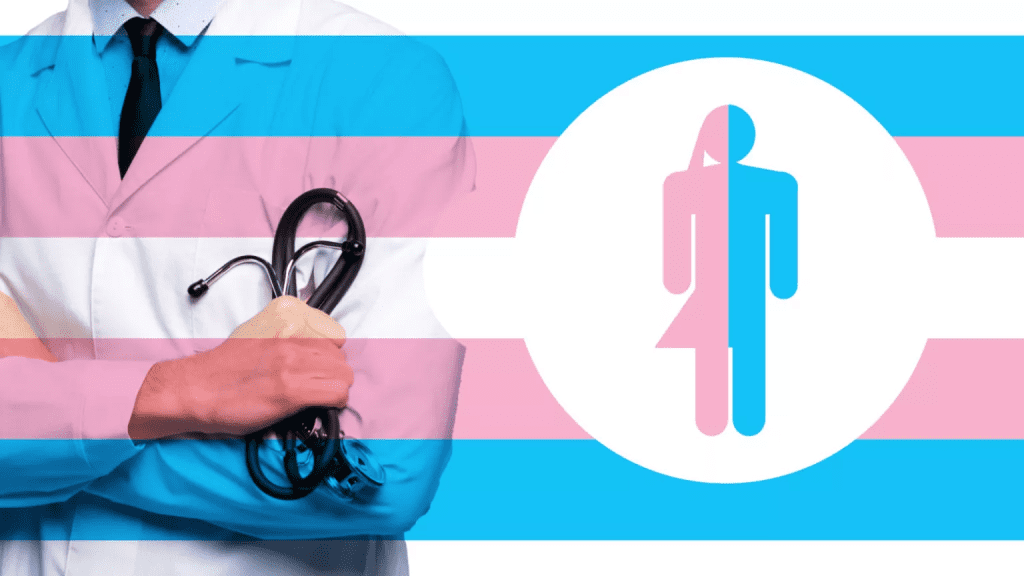When Medical Boundaries Collide With Human Rights
What happens when a healthcare provider says “no” not because of ability—but because of identity? That’s the question circling headlines after Jessica Yaniv, a transgender woman from Canada, revealed that a gynecologist allegedly denied her care, stating outright, “We don’t serve transgender patients.” The story has since ignited a heated national discussion, drawing sharp lines between medical ethics, legal boundaries, and LGBTQ+ rights.
Whether you agree with Yaniv’s approach or not, her case is forcing a spotlight on one of the most complex and emotional issues in modern healthcare: how far does a doctor’s right to choose go when it clashes with a patient’s right to be treated?

The Incident That Reignited the Debate
Jessica Yaniv says she contacted a gynecology office for care, only to be rejected because of her gender identity. The clinic reportedly told her they don’t serve transgender individuals. Yaniv, hurt and frustrated, took to social media and called out the College of Physicians and Surgeons of British Columbia. “Isn’t that against college practices?” she tweeted, questioning whether denying care to a transgender patient was not only wrong—but illegal.
Shortly after, the College clarified that they do not issue formal opinions over the phone, suggesting patients should file official complaints if they believe a physician’s conduct breached professional standards. Yaniv followed up with a formal complaint, though she didn’t publicly specify the nature of the treatment she was seeking.
Video: Trans Women OUTRAGED After Gynecologists Refuse to Treat Them; Cry Discrimination
A Gray Area Between Specialization and Discrimination
This story opens up a messy, nuanced conversation. Can a gynecologist refuse care if they feel untrained or unqualified to treat certain anatomy? Some argue yes—especially in specialties historically rooted in treating biologically female patients. Others say that regardless of anatomical differences, a blanket refusal based on someone’s gender identity crosses into discrimination.
Doctors are allowed to limit their practice based on expertise. That’s reasonable. But here’s the problem: when “we don’t treat trans patients” becomes the default response, it no longer sounds like a scope-of-practice issue. It starts to sound like exclusion.

The Bigger Picture: Access to Trans-Inclusive Healthcare
Transgender individuals across North America regularly face barriers when trying to access routine care—everything from hormone management to cancer screenings. Many report being turned away, misunderstood, or simply feeling unsafe in a doctor’s office. That has real consequences. When you’re forced to fight for basic healthcare, it’s easy to stop seeking it altogether.
This case is just one of many that reflect a larger, urgent issue: the medical field hasn’t kept pace with the realities of gender-diverse patients. And without proper training, clear policies, and inclusive practices, these incidents will keep happening.
The History That Shadows This Case
This isn’t Jessica Yaniv’s first time at the center of a public controversy. Back in 2019, she filed complaints with the British Columbia Human Rights Tribunal against estheticians who declined to perform Brazilian waxes on her male genitalia. These complaints led to intense public backlash, and several small businesses faced financial stress as a result.
Ultimately, the Tribunal dismissed Yaniv’s claims, ruling that her motives appeared to center on financial gain, not genuine discrimination. That decision still echoes through today’s discourse, with critics quick to question whether her current complaint is another publicity move—or a legitimate fight for rights.
Video: Doctor refuses to take on transgender boy as patient says mother | APTN News
Public Opinion Is Split Down the Middle
On one side, some see Yaniv as a tireless advocate, unafraid to challenge a healthcare system that frequently overlooks people like her. They argue that someone has to test the limits to make lasting change—and sometimes, that means being the loudest voice in the room.
On the flip side, skeptics point to her past actions and suggest she undermines the transgender rights movement with cases that feel performative or self-serving. For them, this latest gynecology complaint adds fuel to an already divisive fire.
But here’s the truth: regardless of the messenger, the message still matters. Whether or not people support Yaniv, the question of how transgender individuals are treated in clinics and hospitals remains critical and unresolved.
The Role of Medical Institutions and Policy Makers
So, where does the responsibility lie? Should professional colleges and regulatory bodies step in with stronger guidelines? Most experts say yes. There’s an urgent need for clear, enforceable policies that help providers understand their obligations—and help patients understand their rights.
That includes better medical school training, more robust continuing education, and the creation of safe, inclusive spaces where all patients can seek care without fear of judgment or rejection. It’s not just about tolerance—it’s about preparation and respect.

A Case That Echoes Far Beyond the Exam Room
What makes this story resonate is that it doesn’t just affect one person. It reflects a larger discomfort many people feel when societal change hits the exam room. Medicine is evolving, but for many doctors, the guidelines are murky. And for patients like Yaniv, that murkiness can mean being left out in the cold—again.
We’re in a moment where healthcare must decide whether it will lead or lag behind cultural progress. That choice will shape not just individual lives but the trust people place in the entire system.
Conclusion: Where Do We Go From Here?
Jessica Yaniv’s complaint may stir controversy, but it raises questions we can’t ignore. Should a doctor be allowed to refuse care based on gender identity? Where’s the line between personal comfort, medical training, and ethical duty?
Whether you view her as a changemaker or a provocateur, this incident pulls back the curtain on a healthcare system that’s still learning how to treat everyone with dignity. And until that system fully embraces inclusivity, stories like this will keep making headlines.
Because at the end of the day, everyone—regardless of gender—deserves access to respectful, competent care. The challenge now is ensuring the system delivers on that promise.